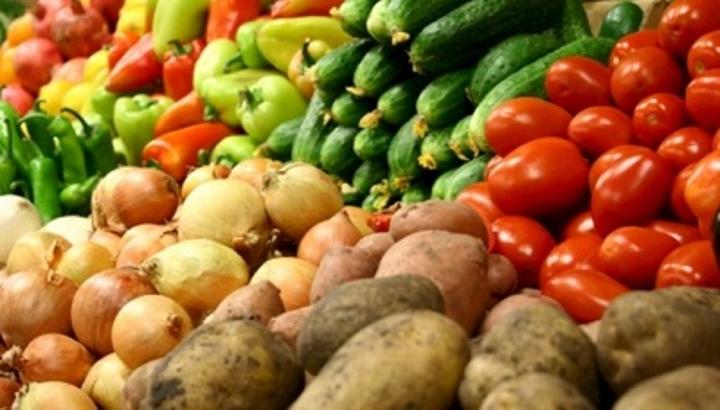Africa-Press – Lesotho. The Ministry of Agriculture and Food Security attests that strengthening the reliability and quality of smallholder produce by integrating the value chain and designing inclusive business
models, alongside increasing market accessibility, can create further stability, encourage good agricultural practice, and help farmers avoid the risk of price volatility.
According to MEAS Discussion Paper 4- Linking farmers to markets, approximately 1.5 billion people are engaged in smallholder agriculture across the world.
They include 75% of the world’s poorest people whose food, income, and livelihood prospects depend on agriculture. Despite their important role as food producers and rural stewards,
the commercial prospects for millions of poor smallholders remain challenging. However, Lesotho’s agricultural sector suffers from low levels of productivity and
commercialization which has made the country heavily dependent on food imports to meet domestic consumption needs. In order to rescue the local farmers from the struggle of market accessibility, the
government of Lesotho with the help of World Food Programme (WFP) has, through a project called Improving Adaptive Capacity of Vulnerable and Food Insecure
Population in Lesotho (IACOV), resorted to support government’s efforts to ensure that farmers’ surplus produce access structured markets. During the launch of the IACOV project in the
past weeks, WFP Representative Ntebaleng Thetsane said through its interventions on improving market access, WFP demonstrated that securing market for farmers produce improves farmers’ livelihoods and
their role in local food systems through inclusive agricultural and economic development, which are key to achieving food security. “It speeds up value chain development that makes smallholders’ produce marketable as
we work closely with governments to forge strong linkages between smallholders and private and public sector buyers”. “Again, in its strategic plan, WFP is committed to empower smallholders
by collaborating with governments and other actors to improve smallholders’ productivity and incomes, thus strengthening food system performance. WFP provides smallholders with stable demand through assured and patient buyers,
such as WFP, local and national school feeding programmes and private companies. This encourages smallholders to invest in their production by improving the quality and quantity of their produce.
Governments and private buyers are supported in adapting their buying practices to meet the needs and capacities of smallholder,” she said. Thetsane further noted that WFP pilot project has worked in Butha-Buthe,
Leribe, Berea and Maseru where they purchased 11 020 bags of sugar beans and pinto beans worth over M8 million and 373 440 bags of maize worth over M36 million.
In these areas, a total of six farmer groups participated in the pilot project. She indicated that among the challenges discovered, smallholder farmers produce
limited produce and are unable to aggregate better volumes that can earn a larger share of the market price. “Also while focus is on enabling farmers to produce more, higher quality and nutritious crops, there is a need
to support smallholders by providing them with basic storage facilities and strengthening post-harvest handling skills to increase the marketable surplus
and to ensure easy access by private sector”. Pricing of commodities is usually found to be high for producers in the value chain, this has been seen to be caused by limited knowledge in
bookkeeping marketable surplus and to ensure easy access by private sector. Smallholders are not aware of the available markets. Failure by farmers to meet market expectations due to lack of physical and financial
assets, such as land and credit, and human assets such as skills, commercial contacts and labour, and even time. Ministry of Education and Training (MoET) also,
through school feeding programme, offers market linkage opportunities. MoET Representative Thuto Ntšekhe Mokhehle said the aim of school feeding programme
is to provide learners with nutritious meals to curb short term hunger with the intention of increasing the attention span of children in class thus improving
learning outcomes. The programme also links smallholder farmers to a viable market and it builds capacity of farmers to add value to their produce, to
improve shelf life and availability. The food commodities that are recommended for school feeding as per MoET National School Feeding Policy of 2015 are maize
meal, which is used for papa and porridge, beans, peas, eggs and vegetables. “Farmers can supply 1 692 720 kg of beans, peas or lentils at least four times
per week, 501 520 Kg of vegetables every week and 417 948 trays of eggs to feed 313 461 learners per annum,” Thetsane informed. Ministry of Agriculture and Food Security
Director Marketing Lekhooe Makhate said the importance of marketing linkages is that they are meant to facilitate the flow of produce between the different
levels of marketing system. They also improve partnership between farmers and buyers and minimize conflicts between the involved parties. Market linkages
further harmonises marketing bottlenecks such as quality and price issues and also minimises post- harvest losses. He said the Ministry also took an initiative to create market linkages for farmers and there is an application
called ‘Marakeng App which is designed in such a way that buyers and farming enterprise connect remotely to enter into business transactions. The Ministry
worked in collaboration with United Nations Development Programme (UNDP) for development of the application and an estimate of 900 farmers have registered
for the app. “There is also livestock auction sales whereby about 1 507 farmers have been linked to the markets countrywide. Farmers have generated an income estimated
over M3 Million” he said. There is also Buyer-Seller Platforms wherean estimate of 119 horticultural farmers have been linked to about 14 traders. In addition, Matelile Farmers
Association has disposed of about 9,101 bags of potatoes to both formal and informal markets and farmers have generated an income estimated at M421, 775.00.
The ministry in June 2021 also launched Contract Farming initiative with the objective to integrate farmers into value chains through binding contracts that instil commitment and obligation.
Lesotho National Farmers’ Union (LENAFU) Program Manager Khotso Lepheana said farmers are always willing to engage in farming and supply of food commodities to the markets but
they face difficulties in accessing markets probably due to poor quality of the produce, low volumes and erratic supply to the markets. He said the important
elements to promoting farmers’ access to market include access to finance which is a key for ensuring profitability and sustainability to smallholders’
activities. It enables smallholder farmers to invest in the necessary infrastructure, equipment and cash flow that will help them produce, and purchase, store, process and better market for their
products. “Commercializing agriculture and improving food supply to market in Lesotho is still a challenge as the sector is faced with several challenges such as frequent disease
outbreak, poor access to breeding, poor access to the market due to low acceptance of the local produce in the formal market and many other factors can
be a cause,” he said. Lepheana further said they recommend that farmers should be trained on best practices on agriculture and food production. They should also
be trained on record keeping, financial management and marketing. He said farmers should be brought together and a platform for dialogue should be created on the food system
where discussions on challenges farmers come across, gaps and opportunities will be discussed and what needs to be done to improve access to the markets.
For More News And Analysis About Lesotho Follow Africa-Press






